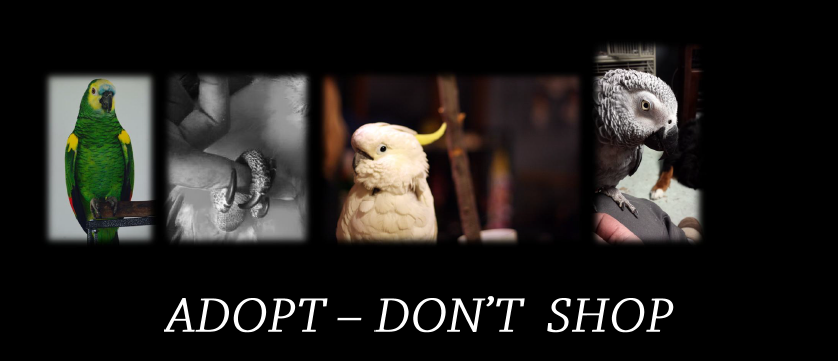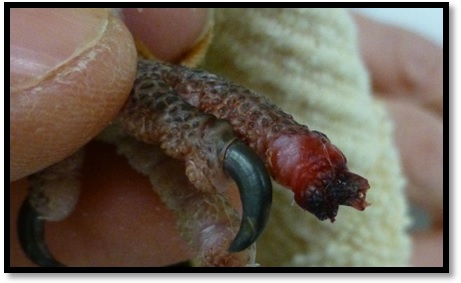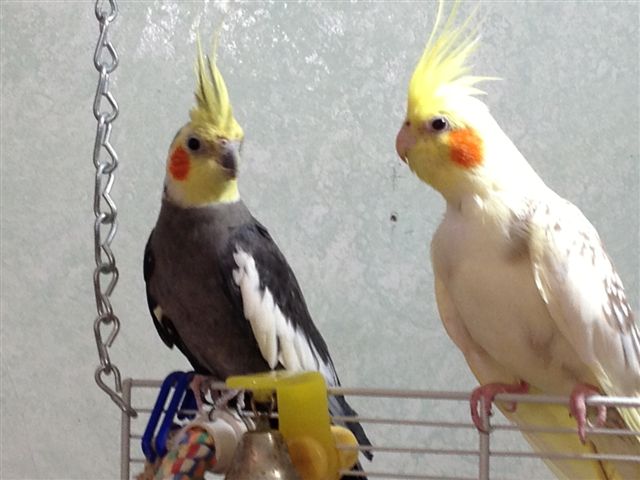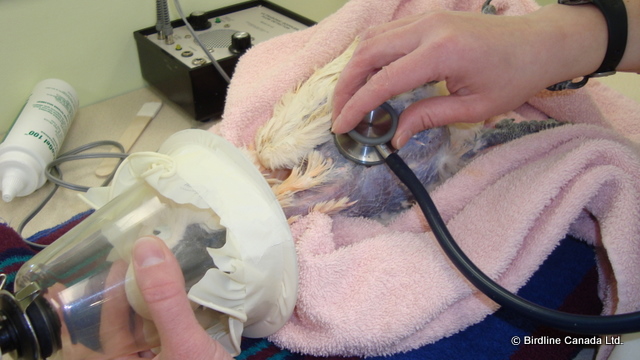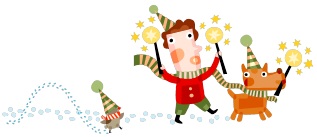Parrots and Frostbite
Living this far north, we Canadians have learned how to protect ourselves from sub-zero winter weather. We bundle ourselves up with boots, toques, warm coats and cozy mittens when heading outside.
Without such protection, prolonged exposure to freezing temperatures could lead to hypothermia and frostbite. Unfortunately, humans are not the only species at risk for frostbite. When the temperature plummets, birds can also suffer the effects of this condition.
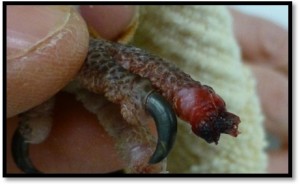
Frostbite occurs when tissue is exposed to freezing temperatures. As the temperature drops, blood vessels in the extremities begin to constrict and blood flow is redirected to the body’s core. This helps preserve core body temperature and protect vital organs.
For birds, exposure to freezing temperatures often results in reduced blood flow to the toes and feet. Sometimes, the tissues in contact with large metal identification bands are affected as the metal freezes. In mild cases, only the skin is affected leading to redness and swelling. In extreme cases, the skin, muscles, nerves, tendons and blood vessels freeze leading to tissue death and the development of gangrene.
Understandably, housing birds outside during cold weather is not recommended. On rare occasions, a bird may be unintentionally exposed to cold temperatures during power outages. Should this happen, transfer the bird to a smaller cage or a travel carrier as these will be easier to keep warm than a large parrot cage. Fill several large plastic pop bottles or milk jugs with hot water and place them outside of but adjacent to the cage then cover the cage and bottles with a towel to trap the heat. Another way to help keep your bird warm is to place them in a travel carrier and wrap it with an insulated sleeping bag but keep a small area open for ventilation. If using the fireplace to warm your home, it is important that flues be open and chimneys kept clean otherwise the bird may be exposed to harmful smoke. If the bird is shivering, place the bird in a running, heated car for warmth. Obviously, the car should not be in a closed garage as this could lead to the build-up of deadly toxic fumes.
If the power outage is prolonged, transporting the bird in a pre-heated car or taxi to the home of a friend or family member is best. The use of barbeques or propane heaters indoors can have deadly consequences for both birds and humans due to carbon monoxide emissions and must be avoided.
If you are experiencing an emergency, contact your local animal shelter or veterinarian for assistance.
Respectfully submitted,
Leticia Materi PhD DVM
Calgary Avian & Exotic Pet Clinic

